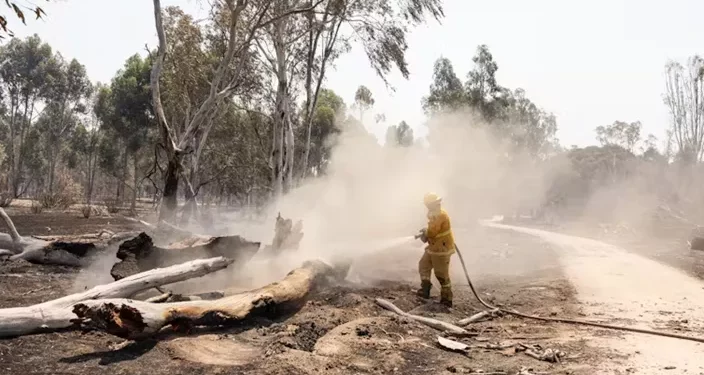As climate-related disasters such as bushfires, floods, and cyclones become more frequent and intense across Australia, communities are grappling with the mental health toll these events are having on individuals. With climate change expected to worsen this pattern, the mental health impact of these disasters is becoming a critical concern.
A recent study published in The Lancet Public Health explores the long-term mental health effects of experiencing multiple climate disasters. The findings suggest that people who endure repeated disasters face more severe and prolonged mental health issues than those who experience only one event.
Study Overview
The study analyzed data from the Household, Income and Labour Dynamics in Australia survey, spanning ten years (2009–2019). It focused on 1,511 people who had lived through at least one disaster, tracking their mental health from the year before the first disaster, during the event, and in the years following. For comparison, 3,880 people who had not experienced any disasters during the study period were also included.
Mental health outcomes were assessed using standard tools for evaluating depression, anxiety, and psychological distress.
Key Findings
The study found that mental health declined significantly after a single disaster, but recovery typically occurred within a few years. However, those who faced multiple disasters showed increasingly severe mental health issues, with longer recovery periods.
In particular, the research highlighted that disasters occurring close together—within one or two years—resulted in greater mental health declines than those spaced further apart.
Risk Factors
Several factors were found to influence the severity of mental health outcomes. Social support was identified as a protective factor, while individuals with long-term health conditions were at higher risk for poorer mental health. Furthermore, the study found that younger people, those with lower incomes, and people living in rural areas experienced more significant mental health challenges as the number of disasters increased.
Cumulative Impact
The research suggests that repeated exposure to disasters contributes to a cycle of cumulative stress, leading to worsened mental health. Individuals facing social disadvantages, such as low income or poor health, are particularly vulnerable to this cycle. The impact is compounded by ongoing financial strain, social disruption, and limited access to resources, particularly in rural areas.
The Need for Change
The study calls for a shift in how disaster recovery is approached. With climate change expected to increase the frequency of extreme weather events, the current model that treats each disaster as a separate event is no longer sufficient.
Mental health support must take into account past disasters and be designed to address the cumulative effects of multiple events. This includes integrating disaster history into mental health assessments conducted by GPs and ensuring that emergency and recovery services reach at-risk groups, particularly those who have experienced multiple disasters.
Conclusion
As climate change accelerates, Australians are facing a future with more frequent and severe climate-related disasters. To effectively support those affected, mental health services and disaster recovery plans must be adapted to address the long-term impact of multiple disasters, ensuring that vulnerable communities receive the help they need to recover and rebuild.
Related topics:



















